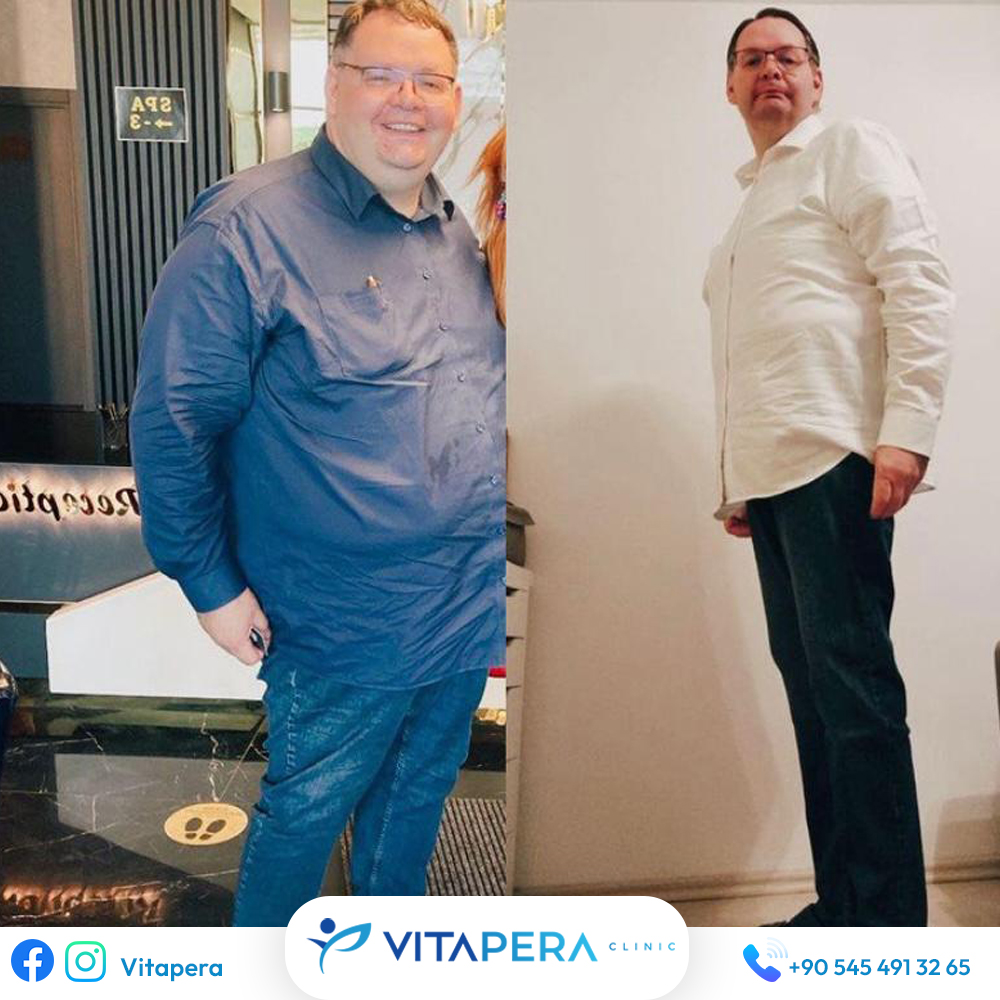Gastric Bypass in Turkey
Change Your Body,
Change Your Life In Istanbul
A Stronger Start to Long-Term Weight Control. Gastric bypass isn’t just about weight loss: it’s about reshaping how your body processes food to support lasting results. At Vitapera, we focus on proven medical care and steady progress, guided by Turkish medical professionals who understand both the procedure and your personal goals.

Contact Us
(+90) 536 558 12 88


Everyone Has the Right to Look Better Make an Appointment Now!
Who Is a Candidate for Gastric Bypass?
First and foremost, candidates for gastric bypass usually have a body mass index (BMI) of 40 or higher. BMI is a measure of body fat based on height and weight. To put it simply, if a person’s weight is significantly higher than what is considered healthy for their height, they may be a candidate.
In addition to BMI, individuals with a BMI between 35 and 40 may also be considered if they have other obesity-related health issues. These may include type 2 diabetes, high blood pressure, sleep apnea, or joint problems that significantly impact their quality of life.
Candidates for gastric bypass surgery should have a sincere desire to improve their health and be willing to make significant changes to their eating habits and lifestyle. The surgery is most successful when combined with a commitment to regular exercise and a balanced diet.

Why Choose Us?

Transportation
In Istanbul, your driver handles airport, hotel, and hospital transport.

Planning
Your companion translator handles all logistics for your comfort.

Accommodation
Free luxurious hotel accommodation is pre-booked by your consultant.

Aftercare
Our medical team offers lifetime support for all your inquiries and needs.
Ask Questions
You can call us 24/7 for your questions and inquiries about all of our Treatments & Procedures.
Before Procedure Tips
After Procedure Tips
We are always with you for your Health!
You can call us 24/7 for your questions and inquiries about all of our Treatments & Procedures.
Overview of Gastric Bypass Surgery

Anesthesia Method

Duration Of
Intervention

Sports Activity
Recovery

Return To
Social Life

Return To
Work

Hospitalization
Average Pain After
3 Days
Amazing Result!
Gastric Bypass Before & After





Benefits of Gastric Bypass Surgery in Turkey
Let’s explore some of the benefits of undergoing gastric bypass surgery in Turkey.
Expertise and Experience
Turkish hospitals and clinics are equipped with experienced surgeons who specialize in bariatric procedures.
Advanced Medical Facilities
Cost-effectiveness
Minimal Waiting Times
Turkish healthcare facilities generally have shorter waiting times for surgical procedures compared to some other countries.
Comprehensive Care and Support
Accessible Travel Options
Cultural Experience
We are always with you for your Health!
You can call us 24/7 for your questions and inquiries about all of our Treatments & Procedures.
Different Types of Gastric Bypass Procedures
Each procedure has its own advantages and considerations, and it’s essential to consult with a medical professional to determine the most suitable option.
Roux-en-Y Gastric Bypass (RYGB)
Mini Gastric Bypass (MGB)
Biliopancreatic Diversion with Duodenal Switch (BPD-DS)
Single-Anastomosis Duodenal Switch (SADI-S)
Loop Gastric Bypass
Gastric Bypass Procedure Explained
Preoperative Evaluation And Preparation
Your healthcare team will provide guidance on preoperative preparations, which may involve dietary changes, quitting smoking, and adjusting medications. These steps ensure that you are physically and mentally prepared for the surgery.
Surgical Techniques And Procedure Steps
The surgery typically involves making small incisions in your abdomen to insert surgical instruments and a camera. The surgeon can see exactly what they’re doing within your body thanks to this camera.
The surgeon will create a small stomach pouch and then reroute the small intestine to connect it to the pouch, bypassing a section of the stomach and upper intestine. This alters the digestive process and restricts the amount of food you can eat, helping you lose weight.
Recovery And Postoperative Care
You’ll gradually introduce a liquid diet and then progress to pureed foods and eventually solid foods under the guidance of a dietitian. It’s crucial to follow the recommended dietary guidelines and attend postoperative appointments to ensure a smooth recovery.
Lifestyle Changes And Long-Term Follow-Up
Regular exercise is also important for maintaining weight loss and improving overall health. Your healthcare team will provide guidance and support throughout your journey, including regular check-ups and monitoring of your progress.
Remember, gastric bypass surgery is not a quick fix but a stepping stone towards a healthier life. It offers the opportunity for significant weight loss and improvement in obesity-related conditions.
However, it’s important to have realistic expectations and actively participate in the postoperative care and follow-up to achieve the best outcomes.
Frequently Asked Questions
Is Gastric Bypass Surgery Safe?
What Are The Potential Risks And Complications Of Gastric Bypass?
How Much Weight Can I Expect To Lose With Gastric Bypass Surgery?
Will I Need To Follow A Specific Diet After Gastric Bypass Surgery?
Can Gastric Bypass Surgery Be Reversed?
How Long Does It Take To Recover From Gastric Bypass Surgery?
Are There Any Dietary Restrictions After Gastric Bypass Surgery?
What Is The Success Rate Of Gastric Bypass Surgery?
Will I Need To Take Supplements After Gastric Bypass Surgery?
Can Gastric Bypass Surgery Improve Or Resolve Obesity-Related Health Conditions?


Everyone Has the Right to Look Better Make an Appointment Now!




